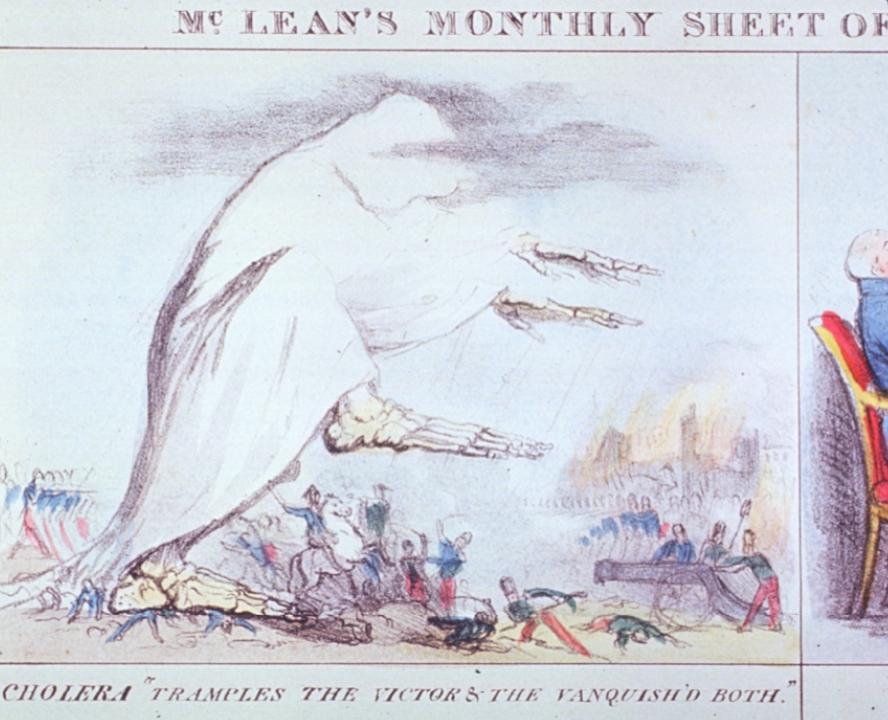
Cholera Tramples the Victors & the Vanquished Both, 1831, United States National Library of Medicine
The public was terrified of miasmas—the popular belief that sickness and illnesses were caused by poisonous, toxic air particles.

Cholera Tramples the Victors & the Vanquished Both, 1831, United States National Library of Medicine
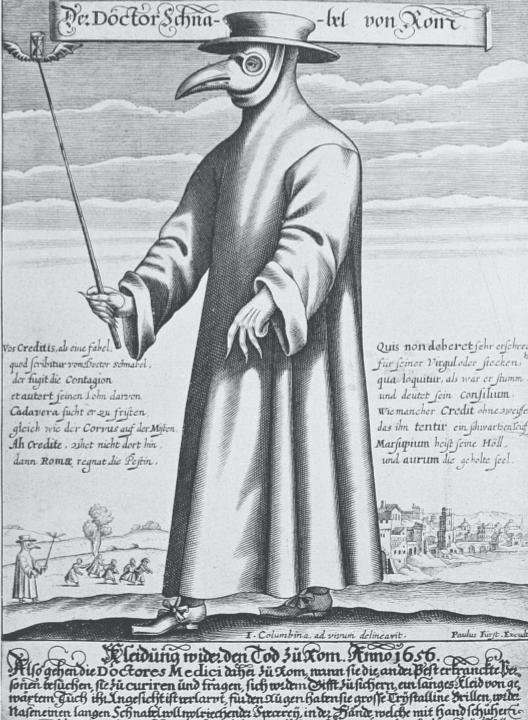
Engraving of the Plague Doctor, Paul Fürst, c. 1656
Communal housing areas became filthy, overcrowded slums. Workplaces frequently lacked ventilation, leaving workers vulnerable to noxious fumes and dust particles that factories produced.
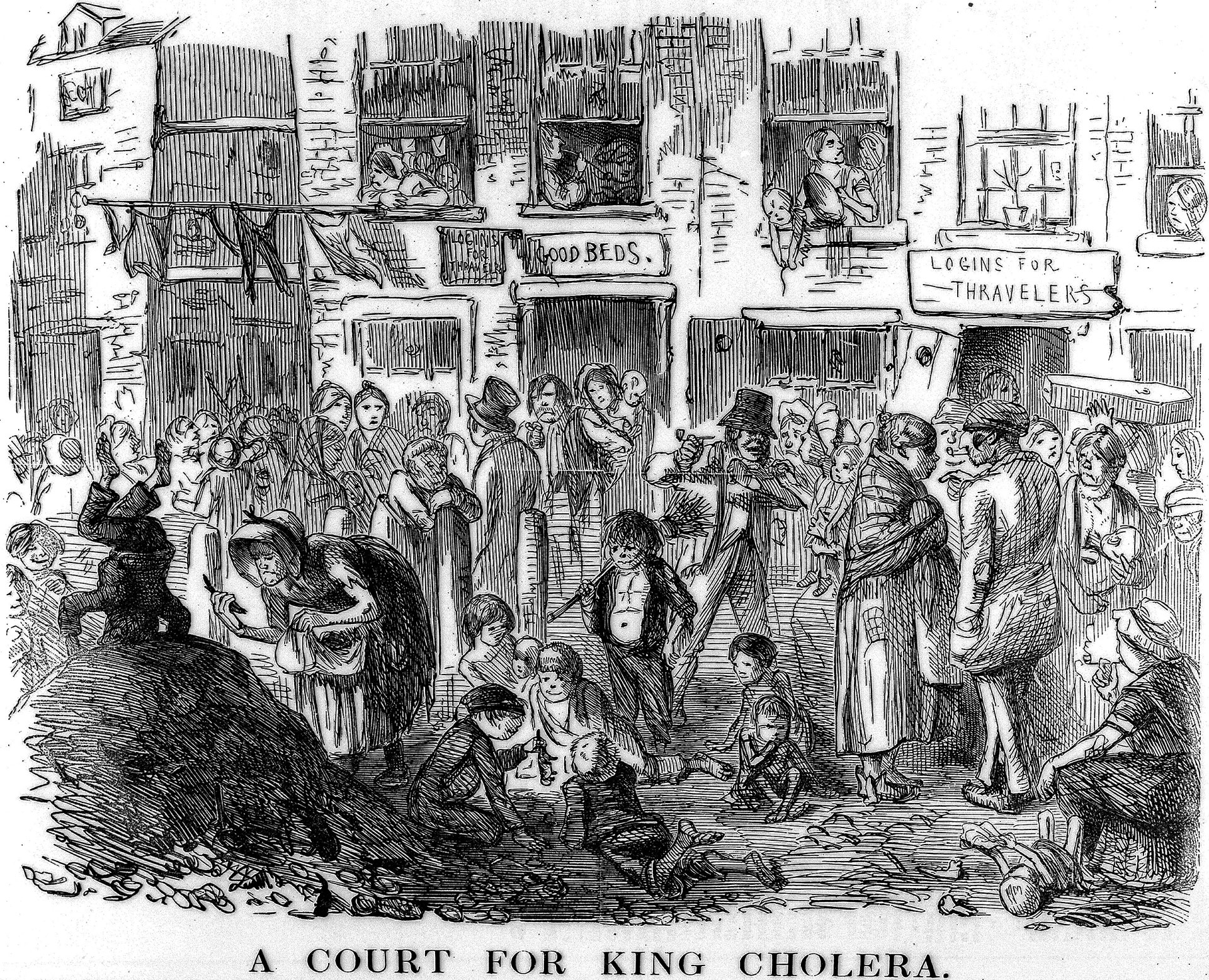
1852, Wellcome Institute Library (London)
" That defective town cleansing fosters habits of the most abject degradation and tends to the demoralization of large numbers of human beings who subsist by means of what they find amidst the noxious filth accumulated in neglected streets and bye-places. "
" ...That the various forms of epidemic, endemic, and other disease caused, or aggravated, or propagated chiefly amongst the labouring classes by atmospheric impurities produced by decomposing animal and vegetable substances, by damp and filth, and close and overcrowded dwellings prevail amongst the population in every part of the kingdom... "
~ Edwin Chadwick (1842 report on sanitary conditions in Great Britain)
Spitting in public spaces and inadequate sewage systems facilitated the spread of disease.
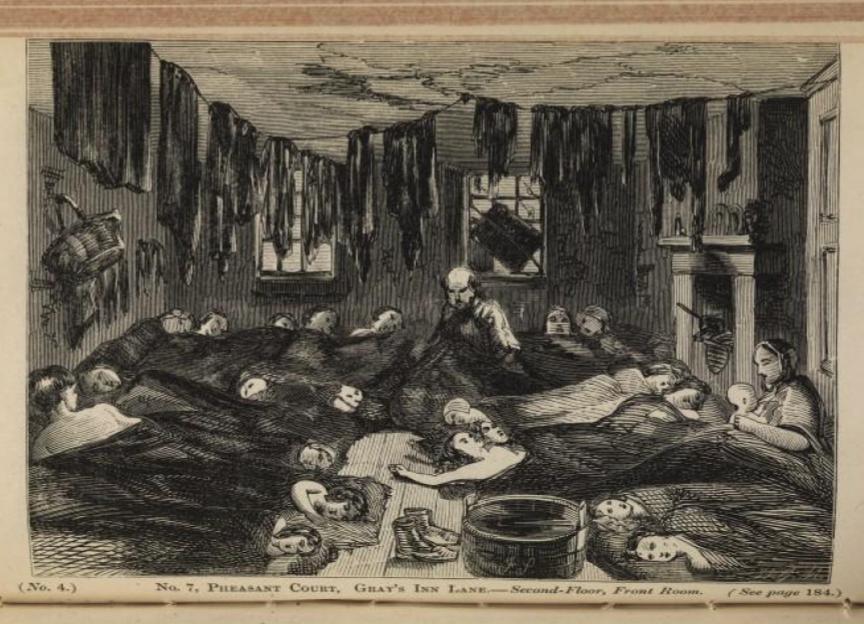
No. 7, Pheasant Court, Gray's Inn Lane-Second-Floor, Front Room, Wellcome Library
Poor immigrants resided in crowded and cramped slums where disease often spread.
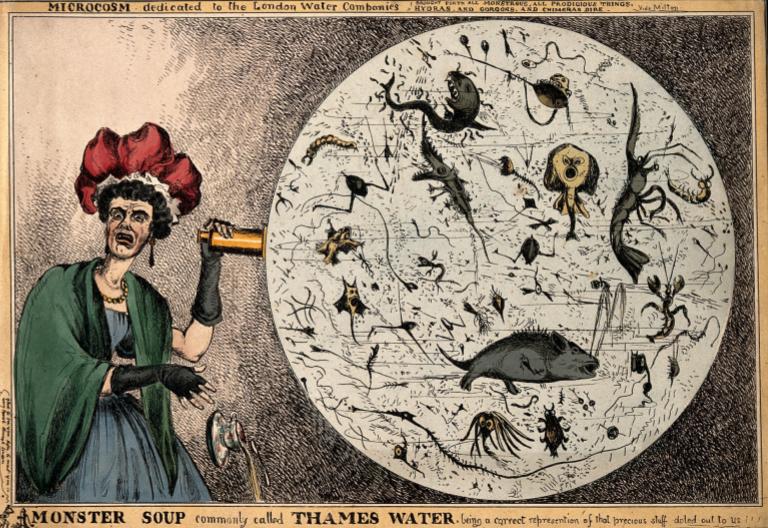
A woman dropping her tea-cup in horror upon discovering the monstrous contents of a magnified drop of Thames water revealing the impurity of London drinking water, 1828, World Digital Library
Outbreaks and epidemics occurred frequently throughout the world. Newspapers documented daily cases and deaths caused by diseases.
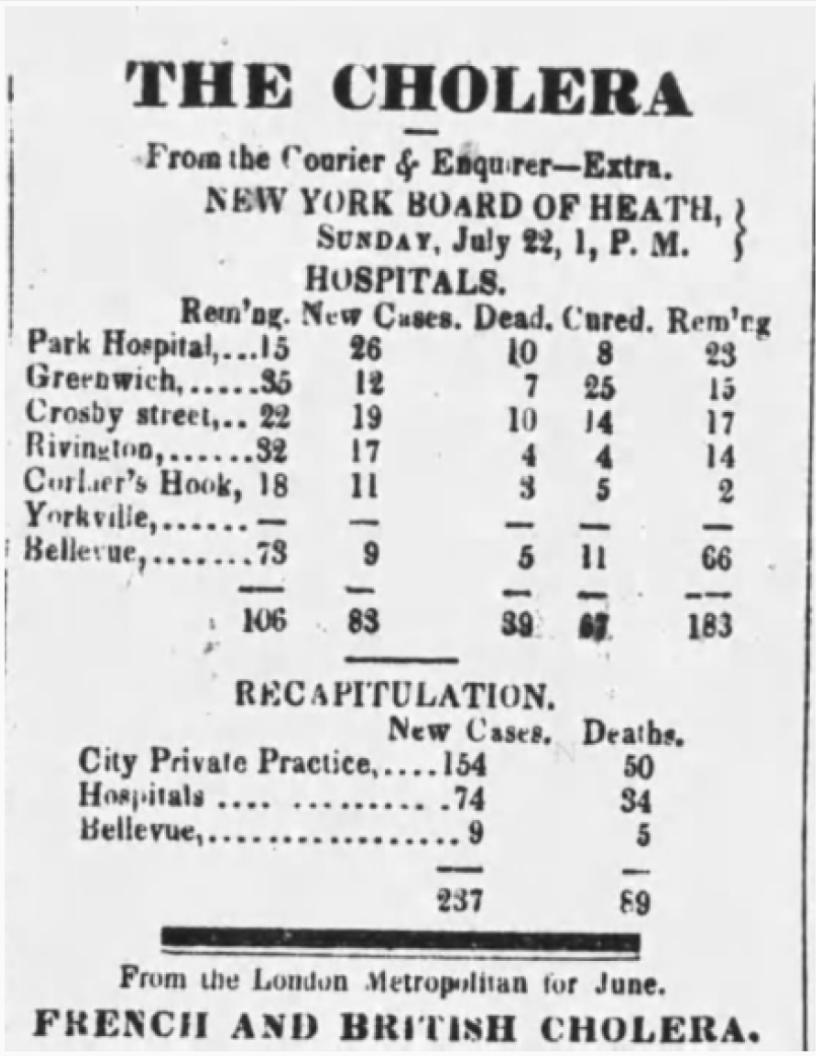
The Cholera, 1832, The United States Gazette (Philadelphia, Pennsylvania)
" ...There is no city in Europe, always excepting Constantinople and Lisbon, where the cholera might be expected to make fiercer ravages than in Paris. And why so? It may be asked. We answer, because the Parisian medical police is as bad as it can, –because the general habits of living are bad, the lower orders poorer, more abandoned, and worse dieted than the generality of the same class in London; the street and houses are not only crowded but undrained, the water is bad, the wine worse; no measures of precaution were taken before the disease appeared, and the plan of secluding the sick was not adopted. "
~ United States Gazette (1832)
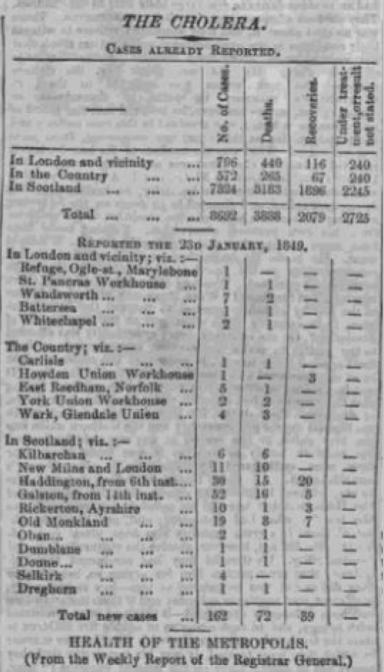
The Cholera, 1849, The Standard (Greater London, England)
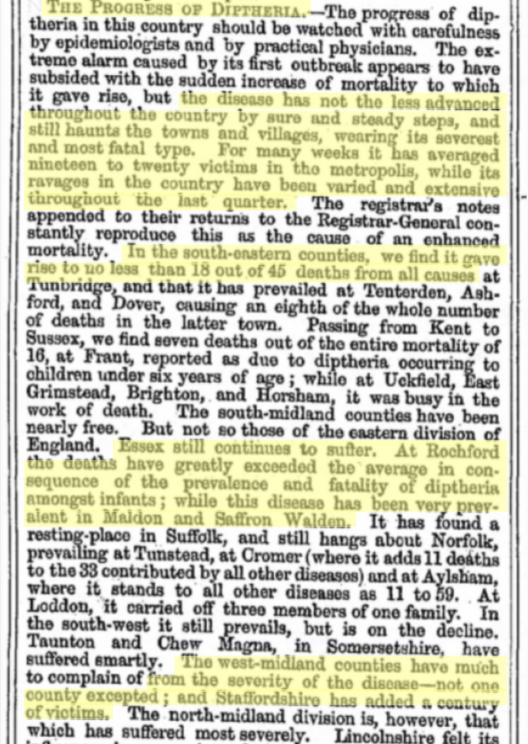
The Progress of Diphtheria, 1859, The Preston Chronicle and Lancashire Advertiser (Preston, Lancashire, England)
" ...The disease has not the less advanced throughout the country by sure and stead steps, and still haunte the towns and villages, wearing its severest and most fatal type. For many weeks it has averaged nineteen to twenty victims in the metropolis, while its ravages in the country have been varied and extensive throughout the last quarter. "
~ Preston Chronicle